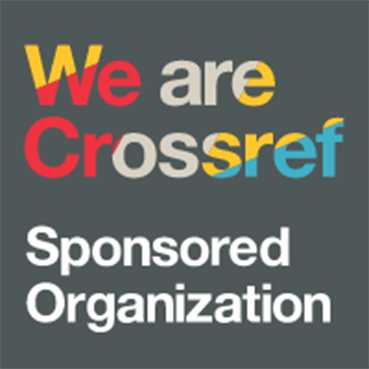The Implementation of Life Skills Education Integrated with Dayah Education
In Dayah Syamsul Ma'rifah AlAziziyah Tangse, Pidie Regency
DOI:
https://doi.org/10.47766/jcii.v1i2.1627Keywords:
Life Skills Education, Islamic Religious Education, Boarding School, MAS Syamsul Ma‟rifah Al-Aziziyah Tangse, Amri Zainal AbidinAbstract
Implementation of Life Skills Education Integrated with Dayah Education is still very little in Aceh, around 382 Dayah have implemented it. One of them is Dayah Syamsul Ma'rifah Al-Aziziyah Tangse, Pidie Regency, out of all 1177 dayahs in the Aceh region. Moving on from these problems, it can be formulated into three, namely; 1) How to implement Life Skills education that is integrated with Dayah Education for students at MAS Syamsul Ma‟rifah Al-Aziziyah Tangse, Pidie Regency. 2). What are the obstacles in implementing life education (Life Skills) for students. 3) What are the solutions in implementing education for life (Life Skills) for students at MAS Syamsul Ma‟rifah Al-Aziziyah Tangse. The research method used in this study is a qualitative method by carrying out a descriptive approach and field observation, as well as a study of relevant books. The results showed that; 1. The formulation of the problem of Implementation of Life Skills Education which is integrated with dayah education at MAS Syamsul Ma’rifah Al-Aziziyah Tangse, Pidie has been answered that has been going well. This can be seen from the time the talent search was carried out since the registration of new students. 2. Obstacles in implementing Life Skills Education which is integrated with dayah education at MAS Syamsul Ma’rifah Al-Aziziyah Tangse, Pidie rests on three main factors, namely; The first factor is insufficient funds in the procurement of raw materials, the second factor is the availability of insufficient time due to the busy time of morning study at school and evening recitation time and the last factor is the factor of instructors who do not have national standard competencies. 3. The solution in implementing Life Skills Education which is integrated with dayah education is also oriented to three main factors; The first factor is the funding solution sought by the Madrasah Head by allocating School Operational Cost funds. Approach with Board members solutions from Dayah Leaders, get credit from local, as well as seek financial assistance from online orders from instructors. The second factor is the small time allocation is the implementation of time training outside the morning study hours and evening reading hours, as well as optimizing vacation time for certain training. And the final solution regarding instructors has been agreed that reliable local instructors are the capital to make MAS Syamsul Ma’rifah Al-Aziziyah Tangse, Pidie students successful in the hereafter.
References
Anonim, 2020. Statistik, Pangkalan Data Pondok Pesantren (pdpp). Statistik Data Pondok Pesantren. Online. (https://ditpdpontren.kemenag.go.id/pdpp/statistik, diakses 19 September 2022)
Creswell, Jhon W. 2016. Research Design Pendekatan Kualitatif, Kuantitatif, dan Mixed. Yogyakarta: Pustaka Pelajar,
Departemen Agama Republik Indonesia, 2000. Al-Qur’an dan Hadits Departemen Agama RI, Al-Qur’an dan Terjemah, Semarang: PT. Karya Toha Putra.
Direktorat Pembinaan Sekolah Menengah Atas. 2017.Panduan Penilaian. Jakarta. Direktorat Jenderal Pendidikan Dasar dan Menengah Atas Kementrian Pendidikan dan Kebudayaan.
Dosen Analisis Kurikulum PAI Berbasis Kearifan Lokal IAIN Lhokseumawe
Dosen Pascasarjana IAIN Lhokseumawe
Hasil Observasi Lapangan di MAS Syamsul Ma’rifah Al-Aziziyah Blang Bungong Kabupaten PidieTgl 07 Juni 2022.
Hasil Observasi Lapangan di MAS Syamsul Ma’rifah Al-Aziziyah Blang Bungong Kabupaten PidieTgl 07 Juni 2022.
Hasil Observasi Lapangan di MAS Syamsul Ma’rifah Al-Aziziyah Blang Bungong Kabupaten PidieTgl 08 Juni 2022.
Hasil Observasi Lapangan di MAS Syamsul Ma’rifah Al-Aziziyah Blang Bungong Kabupaten Pidie. Tgl 08 Juni 2022.
Moleong, Lexy J. 2000. Metode Penelitian Kualitatif, Bandung: Remaja Rosdakarya,.
Downloads
Published
Issue
Section
License
Copyright (c) 2022 Journal of Contemporary Indonesian Islam

This work is licensed under a Creative Commons Attribution-ShareAlike 4.0 International License.



